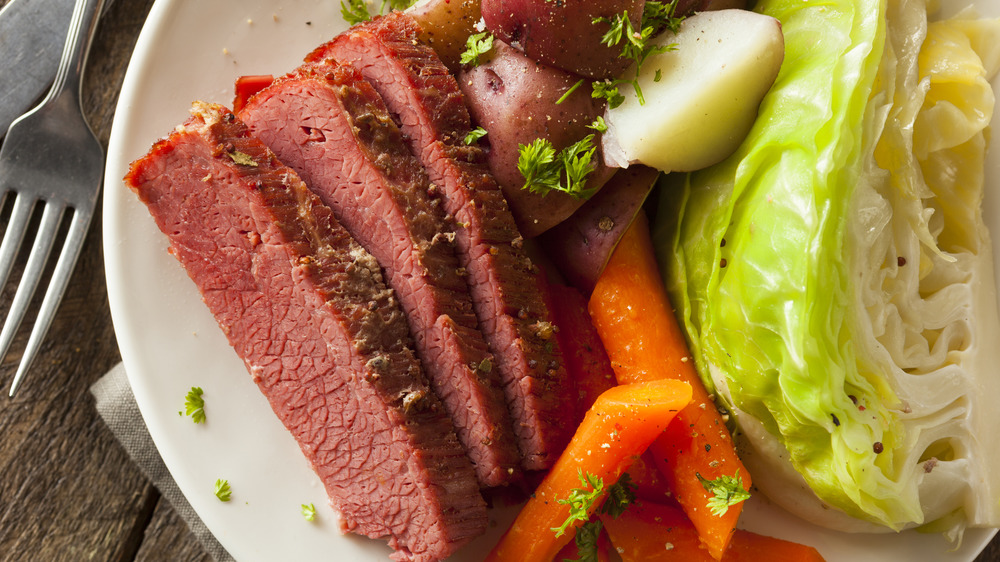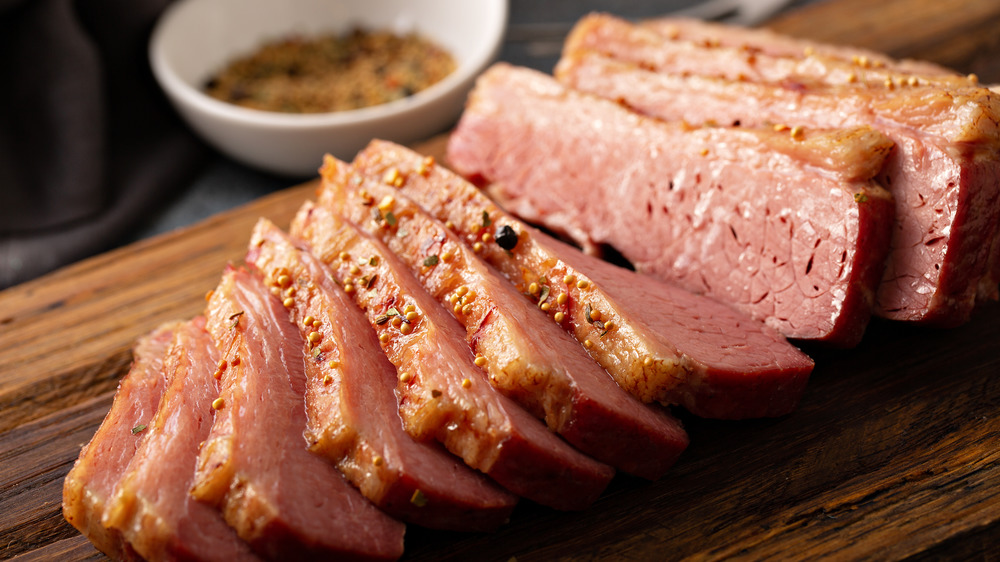The Real Reason Your Corned Beef Isn't Tender
Corned beef and cabbage is simple, tasty, and very budget-friendly, making it the perfect family meal for your St. Patrick's Day celebrations this year. However, despite the simplicity of the dish, it's one that so many people get wrong. Why? They don't understand the importance of the cut.
Because corned beef is made from brisket, it contains lots of connective tissue that, if not properly broken down, will take you much longer to chew than a more expensive cut (via Food and Wine). If your first instinct is to combat this toughness by turning up the heat, don't. The key to corned beef is to cook it low and slow, not just to cook the meat but to tenderize it. How long? According to The Kitchn, "For stovetop cooking, plan on at least three hours for a three-pound corned beef, or eight to 10 hours for a three- to four-pound cut that's prepared on low in the slow cooker." But it's not just the time and temperature that could threaten the tenderness of your corned beef.
More tips for making the perfect corned beef
Wondering how corned beef got its name? It has nothing to do with corn. It's actually in reference to the large grains of salt once used to preserve beef back before refrigeration was prevalent (via NBC News). This might not surprise you if you've ever experienced a bite of overly-salty corned beef, the result of yet another common cooking mistake when it comes to this dish.
To avoid this pitfall yourself, always rinse your meat before any other step. Whether you're unwrapping it for the first time or removing it from a brine, give your brisket a rinse to ensure you're in control of the saltiness of the meal.
The other main mistake people find themselves making when preparing corned beef is not using enough liquid, or the right kind. Food and Wine recommends adding beer to further break down that tough connective tissue, however, if you don't drink, another good option for extra-tender meat is apple juice (via Taste of Home). Finally, don't forget to slice your corned beef against the grain. This is crucial because it means shorter muscle fibers in each bite, and thus an easier chewing experience.

